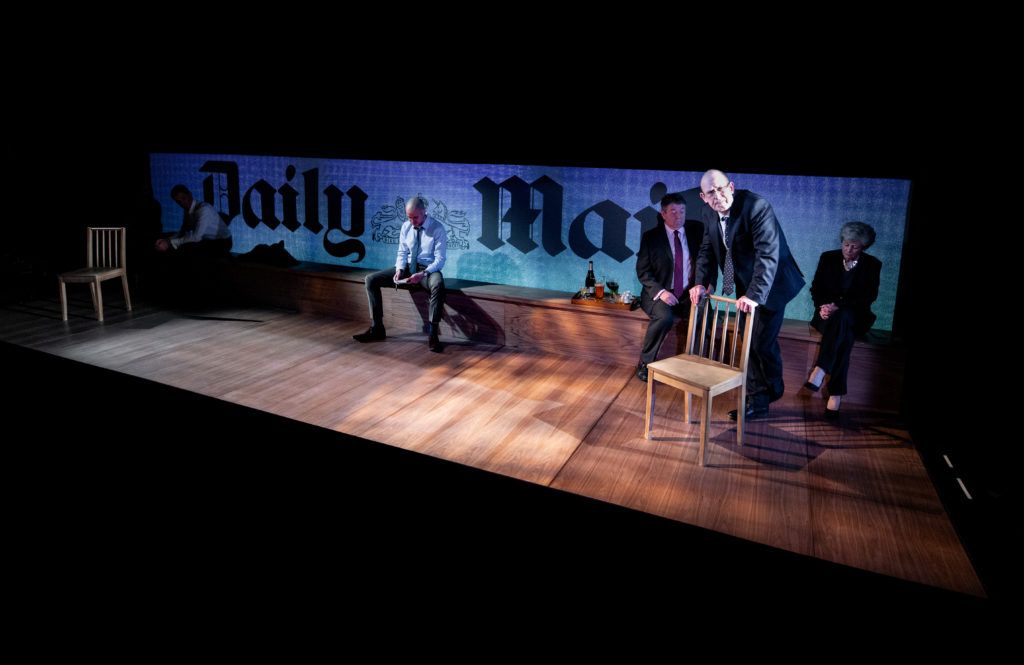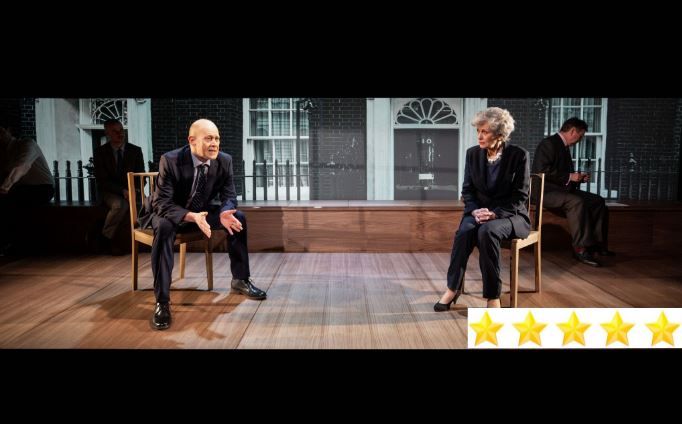Making a play about towering political figures was always going to be a challenge, especially when those figures include a former Prime Minister; a ruthless, rightwing media mogul; and a transparency campaigner.
It was a challenge the playwright, Tim Walker, has risen to and executed very well in Bloody Difficult Women – a dramatisation of transparency campaigner Gina Miller’s clash with the then prime minister, Theresa May, over the triggering of Article 50.
Within a 90 minute drama, Tim Walker has been able to combine polar opposite emotions in one theatrical masterpiece – humour, laughter, sadness, tragedy, and, most importantly, a couple of crucial messages for our turbulent times. One of the central messages of the playwright pertains to the fragility of human connections. If it weren’t for the political events of the past few years, many of the people who seem directly opposed to each other would, in fact, be friends – Mr Walker attempts to illustrate.
Sitting in the theatre and seeing the play for a third time (or what cricketers what call bowling a hat-trick), I couldn’t help but remember the words of the late Jo Cox MP who proudly proclaimed in the House of Commons that “We are far more united and have far more in common than that which divides us”. This, however, is not necessarily true as the playwright illustrates – political contexts and the right wing media’s toxic headlines (yes, I am looking at the Daily Mail) make some friendships nearly impossible.
“after glueing my eyes to Netflix and Amazon Prime over the past two years, this is the first play – post-pandemic – that has reinvigorated my love for drama and theatre – again”
This ties into Mr Tim Walker’s second key message: real power, or a significant proportion of it, in the British political landscape lies within the fourth estate, a term most likely coined by Edmund Burke in reference to the influence the press and the media are capable of exerting on the executive, legislative and judicial branches of the government.
Given that the playwright casts the press responsible for the numerous things that have gone wrong in this country, it is no wonder that some newspapers, such as the Daily Telegraph and the Daily Mail, have refused to acknowledge the existence of this politically meaningful play. For these two newspapers to actually acknowledge and review Mr Walker’s play, it would be like shooting oneself in the foot – not once, but twice (spoiler alert for the owners of these two respective newspapers).
Writing a dramatised play about a purely political event and enticing the interest of those not captivated by current affairs is an applause worthy achievement. If schools, sixth forms and universities wish to educate their students about civic engagement, the rule of law and our political system in an engaging, humorous and entertaining manner, then Mr Walker’s play is the perfect place to start. A point broadly echoed by Rupa Huq MP in her review for The House Magazine.
A playwright, regardless of however mighty their pen might be, can only do so much with smudged ink and scrunched up paper, which is why the audience could not have asked for a better cast: I was most impressed and awed by Calum Finlay, who marvellously changed from one character to another at the click of a button. He went from a laughter-inducing character (Minion) in one scene to a deeply thoughtful character in the next (Max), managing to go back and forth between Minion and Max without ever blurring the boundaries.

I was, too, impressed by Jessica Turner playing Theresa May. Jessica Turner has, throughout the play, miraculously managed to display the former Prime Minister’s antithetical qualities: a confident nervousness, especially when it comes to the latter’s voice and timid stature.
The character, however, who actually ended up stealing the show is Paul Dacre, played by Andrew Woodall. It often tends to be the villain who ends up stealing the show whether on stage or on screen because of their deep and sexy voice or due to their irresistibly or attractive looks. Paul Dacre, the playwright’s former boss, however, will be disappointed to know that the character playing him steals the show because of the laughter he induces from the audience (a little note for Mr Dacre if he’s reading this: they’re laughing at you, not with you).
The playwright, the cast and the producer could not have asked for a better director than Stephen Unwin. It was his fascinating work at the Rose Theatre in Kingston, when I was still a young school boy, that first instilled a thirst for British theatre within me.
Strangely enough, after glueing my eyes to Netflix and Amazon Prime over the past two years, this is the first play – post-pandemic – that has reinvigorated my love for drama and theatre – again.
- Bloody Difficult Women at Riverside Studios in Hammersmith, London until Saturday, 2 April 2022.
_____________________________________________________________________________

Raza Hussain is an award-winning writer: the Extra-Mile winner of Newsquest’s Young Reporter Scheme and Young Writers also certified his ‘Talent for Writing’. Twitter: @raza_hussain01 Instagram: raza.hussain01




